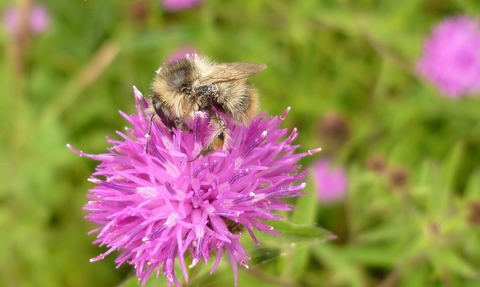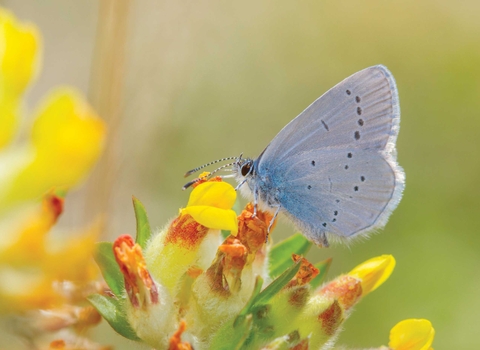What needs to happen?
This is no secret. Wildlife is disappearing at an alarming rate - some are calling it the next mass extinction - and the threat of climate catastrophe is a constant worry.
The Wildlife Trusts are calling for at least 30% of our land and sea to be connected and protected for nature’s recovery by 2030. Making more space for nature to become abundant once again will give our struggling wildlife the chance to recover and also restore beautiful wild places - places that store carbon and help to tackle the climate crisis.
This decade must be a time of renewal, of rewilding our lives, of green recovery. We all need nature more than ever...Chief Executive, The Wildlife Trusts

© Gabrielle Horup
1/3 of species are extinct or in decline
30by30 in Surrey
SWT is working on our 60-plus reserves and with other landowners, businesses, and schools to provide and protect more heathland, woodland, grassland and wetland habitats for nature across the county.
As well as providing space for nature, well-managed natural habitats can capture carbon, produce clean water and food, reduce the risk of flooding in our towns and villages, and provide economic and health benefits to local communities.
By joining our mission for nature's recovery, you will make a real difference to wildlife and our natural world – and you’ll empower us to ask policymakers to be more ambitious too. Nature has given us so much, it's now our turn to give back.
Restoring chalk grassland on the North Down
Chalk grasslands, found across Surrey’s North Downs, are a unique and vital habitat for many threatened species. Restoring them is an important component of the 30by30 goal.
Over the last two centuries England has lost the vast bulk of its chalk grassland. This is a tragedy when one considers the extraordinary floristic richness and diversity of these sites, with a single square metre supporting up to 40 species including many rare orchids. This degradation is devastating to hundreds of species of pollinators from bees to beetles and butterflies.
Now more than ever we must take action to protect and connect the remaining sites, not least because we are facing a pollinator and insect crisis with 41 per cent of insects facing extinction. This includes local extinctions of some bee species, such as the Shrill Carder Bee.
Our vision is to expand flower-rich chalk grassland and wildflower meadows along the North Downs so they become alive with the humming of bees alongside beautiful beatles and butterflies dancing from flower to flower. Working with councils, landowners, charities, farms, vineyards, schools and community groups, we are restoring the historic chalk ridges between Guildford and Reigate, which were once needed to protect us in case of enemy invasion in World War Two. They are still needed today to protect our health and wellbeing and to protect the future of invertebrate populations in Surrey.
Managing sites involves many hours of work to limit the encroachment of scrub which can outcompete sensitive chalk grassland species and lead to a major loss of biodiversity. To deliver the best results on our chalk grasslands, we are increasingly using conservation grazing, in which carefully-managed herds of cows and sheep maintain a wide range of sward and terrain types to support a healthy variety of native plants and animals.

